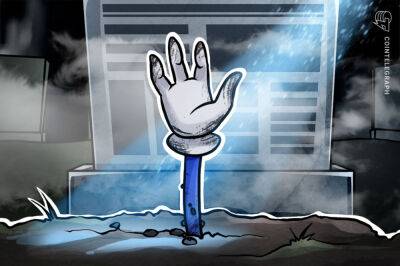Law Decoded, May 30–June 6: Terra’s aftermath in China, Japan and South Korea
The “long waves” of TerraUSD’s May 7 collapse, which we noted two newsletters ago, are extending even further. Last week brought some notable reactions to the stablecoin’s depegging in the East Asia region.
A Chinese state-owned media outlet, the Economic Daily has signaled that the Chinese government may introduce even tighter regulations on cryptocurrencies and stablecoins due to the collapse of the Terra ecosystem. It might even mean a complete ban on stablecoins to prohibit ownership, transfer, purchase and sale of the assets, some experts believe. What China plans, Japan does — as a new law will limit the issuance of stablecoins to licensed banks, registered money transfer agents and trust companies.
It comes as no surprise that South Korea, the birthplace of Terra’s creator, is also among the first nations to react. Amid signs that Terraform Labs co-founder Do Kwon was facing legal trouble in South Korea, the country’s ruling party announced the launch of the Digital Asset Committee, whose task would be to oversee crypto until a permanent government entity is established. This is at the same time when the nation’s Financial Supervisory Service is demanding reports from 157 payment gateways about any service related to crypto, its plans for the future and disclosure of digital assets.
From 2018 to 2021, the budget spent on crypto lobbying grew from $2.2 million to at least $9 million, and that didn’t go unnoticed. A group of academics, software developers and technology experts decided to pen an open letter to lawmakers in Washington, urging them to resist the lobbyist pressure and attempts to create a “regulatory safe haven” for crypto. The crypto community did not stay silent and expressed its disagreements with
Read more on cointelegraph.com












